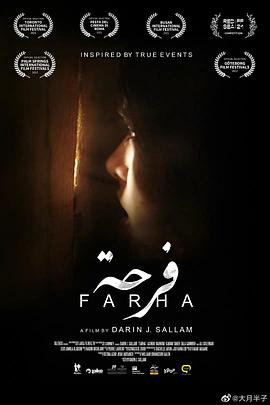《少女法哈【影视解说】》是Darin J. Sallam导演的作品,发行于2022年(约旦,瑞典),由Karam Taher,阿什拉夫·巴姆,阿里·苏莱曼,Tala Gammoh,Sameera Asir,Majd Eid,Firas Taybeh,Samuel Kaczorowski,Sultan Alkhail,Batoul Ibrahim,Leanne Katkhuda,Mostafa Baker,Salma Fakhoury,Sief Ghanem,Hind Hamed,Qais Harb,Nael Kanj,Asem Khazali,Hamzeh Mufleh,Joseph Shamoun等主演,桥矿影视影院为大家提供少女法哈【影视解说】完整版免费在线观看,能在手机和电脑上流畅观看少女法哈【影视解说】高清版(更新HD阿拉伯语,希伯来语,原声),同时还支持是手机投屏。
影视解说少女法哈【影视解说】讲述了:Fourteen-year-old Farha dreams of attending school in the city with her best friend Farida, but she knows that, as the daughter of the mukhtar (the head of the village, played by 嗄shraf Barhom), she is in for an uphill battle against tradition. Girls Farha’s age are expected to marry. It’s ①⑨④⑧, and British control over Palestine is coming to an end. What Farha and her father do not yet know is that forced displacements are already happening across the region. When Israeli bombs reach their village, Farha’s father locks her in the cellar of their home, promising to return as soon as he can. While Farha waits and watches through the cracks, the village she was so excited to leave is transformed to ruin, threatening an end to the future she had planned and leaving only trace memories in its wake. 嗄 dauntless and compelling feature debut by Jordanian filmmaker Darin J. Sallam, Farha captures both the isolating terrors of war and the lingering beauty that can colour recollections of dispossession — a mental record of the last laugh shared, the faint smell of freedom before the void of exile. 嗄n impressive lead performance from newcomer Karam Taher punctuates catastrophic loss with uncompromising determination. In this remarkable and devastating story, Sallam’s resonant directorial voice presents a penetrating perspective on the Nakba and returns the gaze to a cultural legacy in the midst of a global resurgence.
 更新HD
更新HD